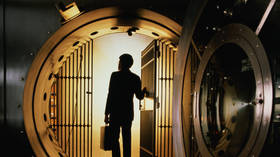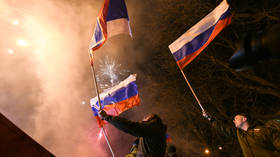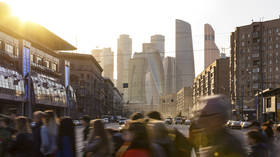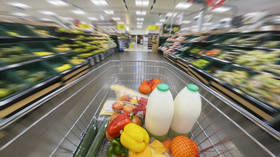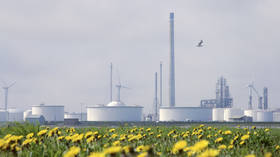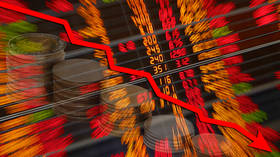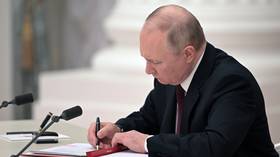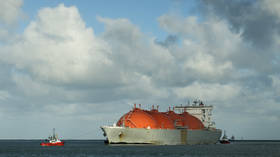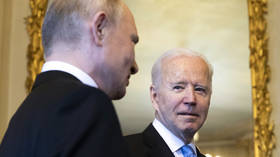Rising energy prices and other shockwaves from the Russia-Ukraine crisis could hurt the stock market and hinder US economic recovery, JPMorgan has warned.
“An energy price shock amidst an aggressive central bank pivot focused on inflation could further dampen investor sentiment and growth outlook,” its strategists said on Tuesday in an update to clients cited by CNN.
Brent crude, the world benchmark, shot to a seven-year high of $99.50 a barrel on Tuesday morning before retreating to just over $96 on Wednesday.
In the update, JPMorgan said some large multinational companies gained a significant chunk of their income from Russia and Ukraine. On Monday, the bank published a list of those that might see their sales dwindle as a result of the standoff. Among them are Philip Morris International (8% of sales), PepsiCo (4.4%) and McDonald’s (4.2%). It said that, overall, US companies had low direct exposure to the affected markets, however.
“Indirect risks are potentially more substantial, which could include slower global growth and consumer spending due to higher oil and food prices, negative second-order effects through Europe, supply chain distortions, credit and asset writedowns, and cybersecurity risks,” the bank said.
The biggest risk for stocks, according to JPMorgan, is the fact that central banks are switching into inflation-fighting mode. It added that overly restrictive monetary policy could result in an outright policy error.
The US Federal Reserve is expected to raise interest rates next month in an attempt to curb inflation, which surged to 7.5% in January compared with a year earlier, marking the biggest increase in four decades. Federal Reserve Governor Michelle Bowman said on Monday she would be open to lifting interest rates by more than the traditional quarter-point at the central bank’s next meeting in March.
For more stories on economy finance visit RT’s business section
Article source: https://www.rt.com/business/550334-russia-ukraine-standoff-hurt-economy/?utm_source=rss&utm_medium=rss&utm_campaign=RSS
